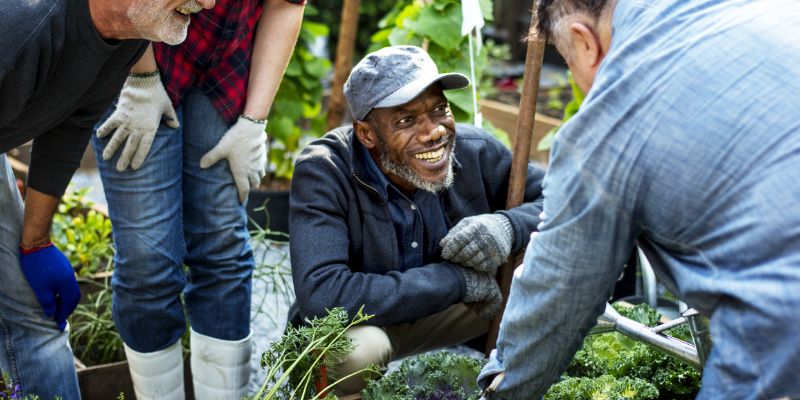People who spent their time gardening during the coronavirus lockdowns felt less lonely than those who spent most of their time indoors, academics have said.
Researchers from the University of Essex have found that gardening improved the mental wellbeing of lots of people during the COVID-19 pandemic, especially those battling loneliness.
During the experiment, the team of scientists examined the emotional wellbeing of 53 adults who took part in a therapeutic community garden scheme.
Each participant had self-reported that they were suffering with their mental health, the study has identified.
The researchers detected a 9% improvement in the participants’ mental health at the end of the gardening project.
Top author Dr Carly Wood said: “There is growing evidence to support the use of nature-based interventions for the treatment of mental ill-health and great potential to upscale the use of therapeutic community gardening through the Government and NHS’ Green Social Prescribing agenda.
“The pandemic drew this clearly into focus and showed that even as we coped with unprecedented disruption and upheaval, community gardening has the power to help some of society’s most vulnerable people.”
She added: “I’m hoping this study will show the power of therapeutic community gardening and inspire more research into its benefits.”
The therapeutic community gardening project was organised by Trust Links, an independent charity for mental health and wellbeing based in the South East of Essex.
- Direct link between seeing or hearing birds and positive mood, research shows
- Study finds getting 8,200 steps a day reduces risk of high blood pressure, sleep apnoea and depression
Matt King, Chief Executive of Trust Links, said: “Through this evaluation with the University of Essex it is clear that our Growing Together therapeutic community gardening projects have a powerful impact on mental health and wellbeing, improving connections with other people, providing positive activities, giving people’s lives meaning and hope, and enabling people to spend time outdoors with nature.
“Further investment in these services will help reduce demand on the NHS and social care, helping us to grow communities and transform lives.”
The study has been published in the International Journal of Environmental Research and Public Health.





